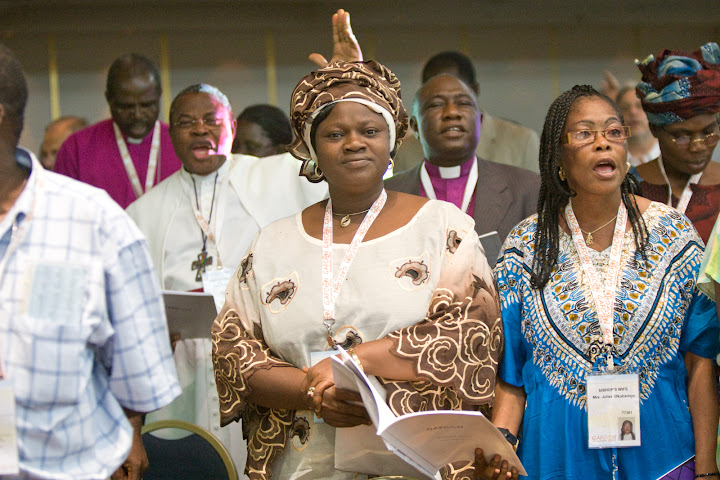I’ve recently had the opportunity to read and reflect on
Speech-Act theory. For those a little fuzzy on the details, Speech-Act theory arose as a
linguistic and philosophical response in the mid-twentieth century to the
prevailing idea of the time that language is all about the mere transference of
ideas. Speech-Act theory holds that language does more than convey bits of
information. Rather, language is a medium by which persons performs actions in
relation to another.
Implied within Speech-Acts theory is a wonderful
anthropology in which humans are more than machines sending and receiving
information. We are creatures who relate to one another, and language is part
of that relating. In fact, language does something. We see this in cases such
as during a wedding, when the minister declares the man and woman to be husband
and wife. That is simply the conveyance of information; the declaration does something
– it creates a whole new reality.
Likewise in declaring a defendant to innocent
or guilty, a magistrate is not merely communicating ideas, but doing something with
her language. The classic example used by Speech-Act theorists such as J.L.
Austin and John R. Searle would be a promise (although it applies to other
areas of speech). In making a promise, I am binding myself certain obligations
to keep my word. And they would argue, it entails you as the listener to
certain duties to take me at my word.
Speech-Acts has been appropriated by several biblical
scholars and theologians in the last 30-40 years or so. Some have used the
theory to help interpret various illocutionary acts within scripture. Others
have used it to develop a theological hermeneutic in which scripture is God’s
Speech-Act, his divine discourse through which he speaks. Kevin Vanhoozer
traces this to actions of the persons of godhead within the economic Trinity,
which makes for interesting reading.
Part of the attraction of the Speech-Acts model for
Christians has been the seriousness in which handles the authorial intent of
scripture. The theory does not allow you to value you receivers’ interpretation
over the text or the author, but appropriately respond to the rights of the
author, text, and reader. For Vanhoozer, part of the way language works is that
it creates covenants between people. Because language is more about action than
representation, “this entails certain rights and responsibilities on the part
of authors and readers.” For the reader, one of the obligations binding their
reading is that the meaning of a text is not indeterminate or irrelevant, but
determined by the conventions of both the author and the text. This means then
that as we readers, we have a covenantal discourse duty to read charitably.
This is by no means the main point in terms of the
appropriation of Speech-Acts for biblical studies, but vastly important none
the less. Speech-Acts theory provides another plank for Christians to operate
within an epistemology of hermeneutics. In fact, I am persuaded that to the
degree that you apprehend your salvation by grace alone is the degree to which
you will operate in epistemic humility. An epistemology that is marked and
charged by grace must of necessity take people at their word, exercising a love
and imagination that what people say, they will do. This does not rule out
disagreeing with people – by no means! Nor does it rule out saying something is
wrong. But because we are committed to understanding the intent of the
speaker/author (that is, on their own terms), that means we are bound to
listen/read people charitably. Or as was recently suggested in an excellent
sermon I heard at college, disagreeing charitably with someone means
representing them accurately rather than a straw man, such that they would
agree with your description of their views.
During my reading I came across a suggestion from Mark
Thompson that done well, criticism is an act of service for the reading
community. Here are two very brief quotes that were used to make that point:
“ …the first task of the critic is respectfully to discern and accept the actual nature of what he or she is reading…” – Peter Jensen
“…the first hermeneutical reflex…should be charity towards the author.” – Kevin J. Vanhoozer.
The epistemic humility espoused by Speech-Acts theory is not
opposed to criticism. That is all part of relating to people in a covenant of
discourse. But to be done well, it must
of necessity be done charitably.






